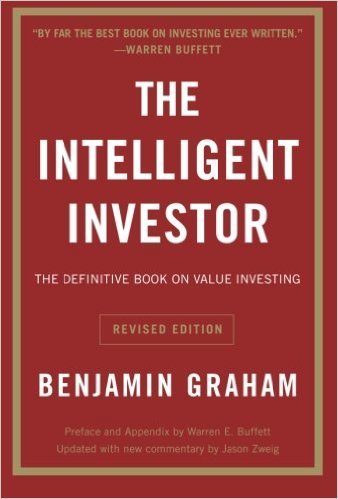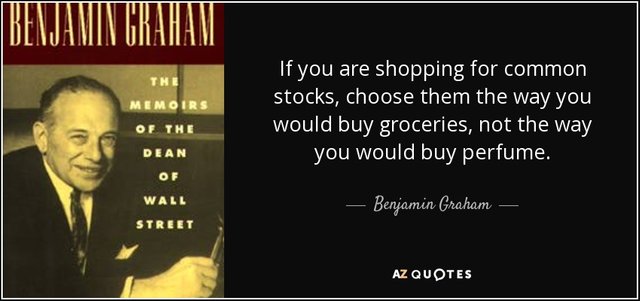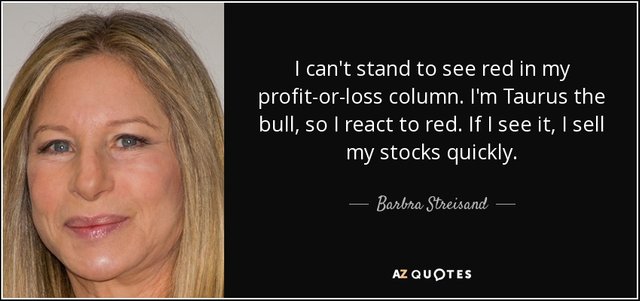Buying cryptocurrencies is not investing, but speculating (intelligently!)

I would like to share with you some valuable insights I got from reading the book “The Intelligent Investor,” by Benjamin Graham. It seems that many people involved in cryptocurrencies markets consider themselves as investors. I surely considered myself as an investor for a while. I discovered the world of finance and investing as my interest for Bitcoin and other cryptocurrencies grew. But my perspective changed upon reading that book; I wish I had read it before I started pooring (and losing) a good deal of money into BitShares. I don't regret the intellectual journey, and I still think that BitShares provides an awesome and promising technology, but I should have been much more cautious.
Here I would like to talk about “The Intelligent Investor,” what you can get from it, and whether cryptocurrencies can be considered an intelligent investment. The book's author, Benjamin Graham, is no small name. He was an investment mogul, and the mentor of Warren Buffett and other extremely successful investors. He is considered the father of value investing, a successful and rational investing paradigm that I would dare to call the science of investing. But value investing is not what most investors actually do.
The first edition of the book was published in 1949, then revised and reissued in 1973, and a third edition came out in 2003, accompanied by commentaries and developments from Jason Zweig. Meanwhile, the technology changed a lot yet the pieces of advice are not outdated, because the psychological mechanisms that are behind market behaviors haven't changed.
Two valuable insights
A first thing to keep in mind when one considers investing one's money is that a majority of investment experts, including some very smart guys managing investment funds, are unable to reliably beat the market in the long run. However, buying an index fund (like the S&P 500, tracking the performances of the 500 biggest US companies and thus averaging the market returns) requires no effort, nor to pay any management fee (which can often be a significant portion of your potential return). In the end, you have a very high probability of being better off buying into an index fund rather than trusting a mutual fund with your money! The simplest strategy can beat most other strategies.
Also worth remembering is this apparent paradox in the psychology of investing: buyers feel like they make a sure bet when the stock market is the most risky (i.e. at the end of a bull rush), and feel like stocks are extremely risky when the market is low and some stocks are actually so cheap that you can buy them for less than the amount of cash the company owns in its bank accounts. After a market crash, all common stocks are widely regarded as speculation, whereas during a bull market, on the contrary, anyone who buys stocks calls himself an investor. Graham provides an interesting number here: in 1948, 90% of people were opposed to buying stocks, though the decade from 1949 to 1958 saw one of highest 10 year returns in history, with 18.7% annualy. And at the end of 2002, only 24% of investors were willing to invest more in their mutual funds or stock portfolios, down from 47% just 3 years earlier. That seems to apply to cryptocurrencies. Buying is riskier when the price goes up, but buyers seem (at least by what they say in trollboxes and forums, as far as I can tell) more confident with their buying decisions when the price is soaring.

Investment vs speculation
Let's consider Benjamin Graham's definition of an investment: “An investment operation is one which, upon thorough analysis promises safety of principal and an adequate return. Operations not meeting these requirements are speculative.”
By this definition, buying cryptocurrencies is clearly NOT an investment operation. Indeed, cryptocurrencies promise no safety of the principal (i.e. the money you initially spent to buy) at all, nor is there any guarantee of any return in any form. If buying into crypto markets is not an investment, it must be speculation. I believe that this should be an important thing to accept for all people involved in buying cryptocurrencies. Your money is not safe in cryptos. Given their proliferation, altcoins are clearly not safe stores of value, but Bitcoin is not safe either: just imagine what would happen to the value of BTC if Satoshi came out of his silence and started selling his Bitcoins for US dollars.
Speculating is not the same thing as investing, but it is not necessarily a bad thing. Some speculation is unavoidable, and speculation can also be intelligent. That's what I hope to be now as a cryptocurrency buyer: an intelligent speculator. Speculation brings a benefit to society: it assumes the risks of unestablished activities, and drives innovation. “Without speculation, untested new companies would never be able to raise the necessary capital for expansion. The alluring, long-shot chance of a huge gain is the grease that lubricates the machinery of innovation.”
But speculation is not that intelligent when you're risking more money that you can afford to lose. It is dangerous to feel like you're investing, and are thus feeling like your money is safe, when you are, in fact, speculating. Margin trading is speculative by nature. And margin trading cryptocurrencies is just like gambling. Of course, gambling is fun, and if the odds are in your favor, for example if you have insider info or if you margin sell a crypto that does have an expected value, like BitAssets sold at a premium, gambling can still be a rational economic choice. But it is always a good thing to be reminded that you are dealing with serious risks here.
A key point made by Benjamin Graham throughout his book is that the future of security prices is never predictable. Professionals in forecasting are extremely bad at being right. When you take a decision to buy a stock, you should focus on price, compared to the book value of the company, rather than on timing, because you can never know when the market is at its lowest. Regarding cryptocurrencies, there is no such thing as a book value, so there is no objective measure of the value of a cryptocurrency. By Graham's definition, this disqualifies cryptocurrencies as an investment.

A speculator gambles that a stock will go up in price, and base its standards of value upon the market price. If you're investing, the daily share price should be irrelevant. “Invest only if you would be comfortable owning a stock even if you had no way of knowing its daily share price.“ Remember that whatever happens, the broker, be it wall street or a crypto exchange like coinbase or poloniex, is always winning money with trading activity. Therefore, brokers have all incentives to make you trade as much as possible, so they downplay the durable virtues of investing, and hype the appeal of speculation. In his commentary, Jason Zweig brings a useful metaphor to describe the crazy 1990's market of day trading and stock-picking systems, where data about stocks became ubiquitous and millions of people (including Barbra Streisand) were trading and sharing their tips: “If someone is driving at 130 mph instead of at the limit of 65 mph and is claiming that he was right because he didn't die, should you imitate that boaster?”
Beware and don't follow what is screamed in the trollboxes if you want to keep your money! But the gambling instinct is part of human nature, so it is futile for most people to try to suppress it entirely. It is however crucial to acknowledge that instinct, and to restrain it.
Two kinds of intelligent investors
If you're interested in developping a portfolio of stocks and bonds, "The Intelligent Investor" is a classic full of great advice that will guide you wisely. Graham describes two profiles for intelligent investors. The defensive investor is mostly risk averse and will basically follow the market, and buy high quality bonds when the stock market is clearly overvalued. The aggressive investor will spend a lot of time investigating the financial health of various companies and actively look for bargain issues, trading at less than their book value. However, according to Graham, if you're not ready to do it full time, it's not worth pursuing the aggressive investor path. In his words:
“The aggressive investor must have a considerable knowledge of security values. Enough, in fact, to warrant viewing his security operations as equivalent to a business enterprise. There is no room in this philosophy for a middle ground, or a series of gradations, between the passive and aggressive status. Many, perhapost most, investors seek to place themselves in such an intermediate category; in our opinion that is a compromise that is more likely to produce disappointment than achievement.”
Finally, here is an outline of the subjects covered by this book, in case you are curious:
- the history and effects of inflation
- the history of stock prices
- the different kinds of financial products (stocks, bonds, convertible issues, warrants)
- the psychology of the investor
- the ecosystem of stock exchanges
- the various financial advisors
- how to select an investment fund
- an introduction on how to evaluate and select stocks and bonds
- an introduction on how to read financial reports so as to uncover the tricks of corporate accounting (but that deserves a whole book dedicated to it)
Conclusion
I think that it is important to consider ourselves crypto buyers as speculators, even (especially!) as we feel 100% confident that we are investing in the next coin or technology that will change the world. Trading is incredibly addictive, and may destroy your life... And since cryptocurrencies enable everyone to trade, in a seemingly even crazier environment than wall street, I bet that a lot of people will have their lives broken because of cryptocurrencies trading addiction. That book provides some necessary sanity checks!

I followed and upvoted you. Please follow and upvote back. Thanks!
Hey, thanks! I took some time writing this article 10 months ago, but I should've invested more time formatting and promoting it (I suck at steeming ^^). It's nice to getting some little recognition now, thanks.
spot on. thanks!
I came here from google very well written
Great article. Graham's book is a classic and delves quite well into market psychology.
Doesn't make sense. I don't need a 3% a year dividend i rather make a shitload of money because the price of crypto goes up bigtime.